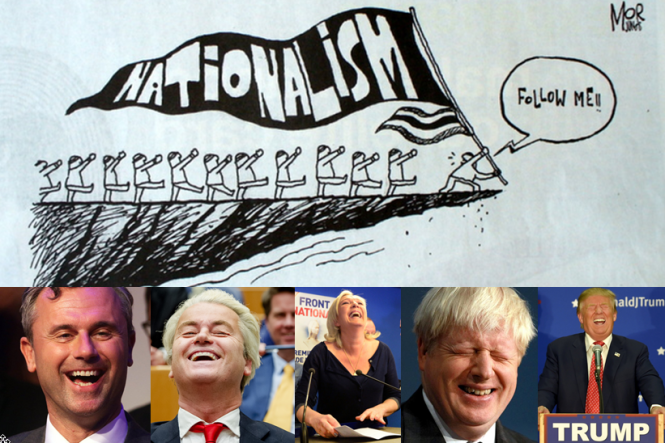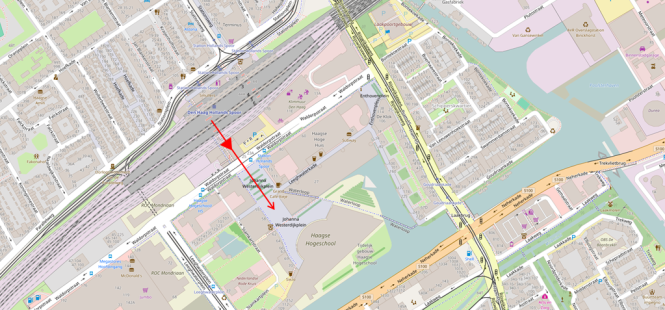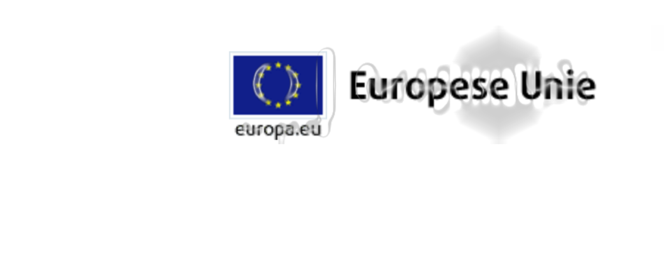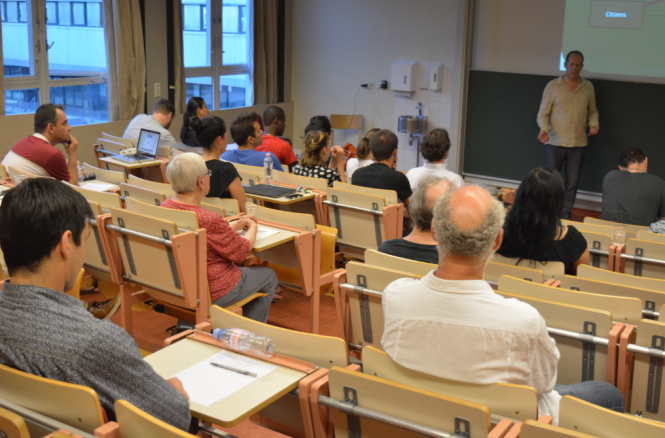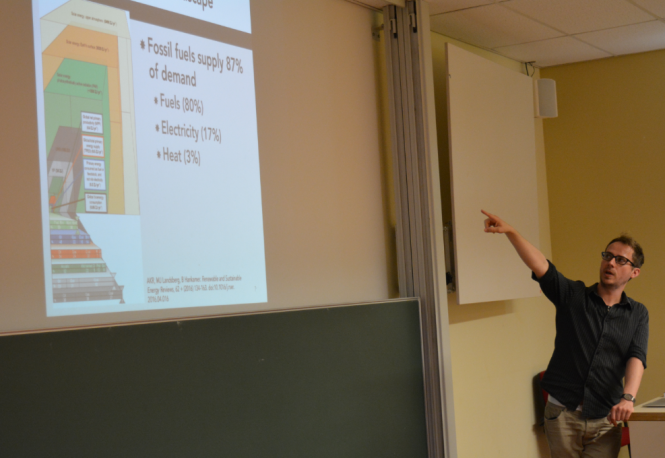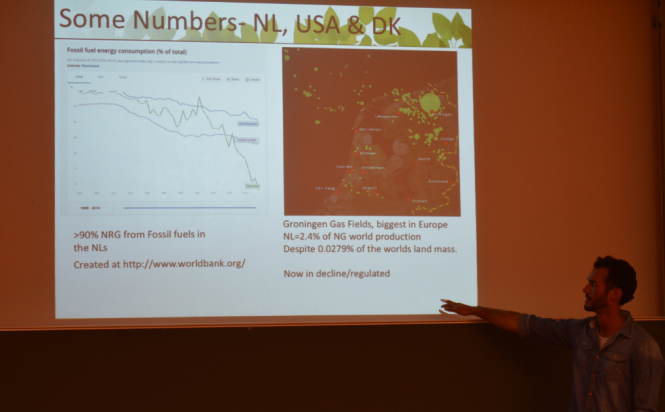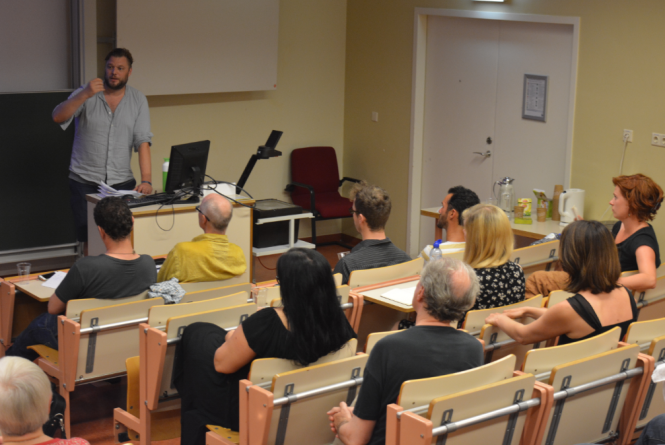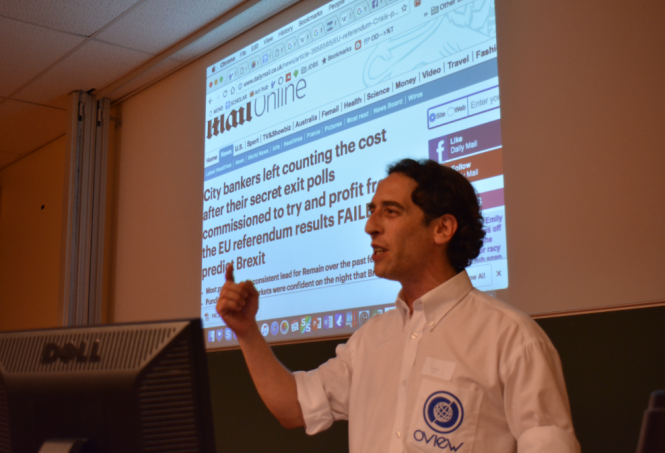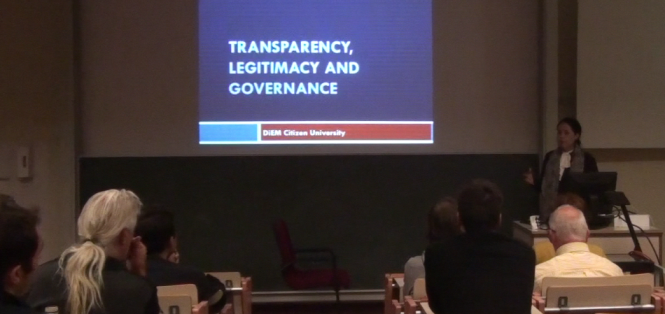
Our chairwoman opens up the session.
In our last seminar, we discussed the following concepts: transparency, legitimacy and governance. Here a quick recap of who spoke about what.
Can democracy exist without trust?
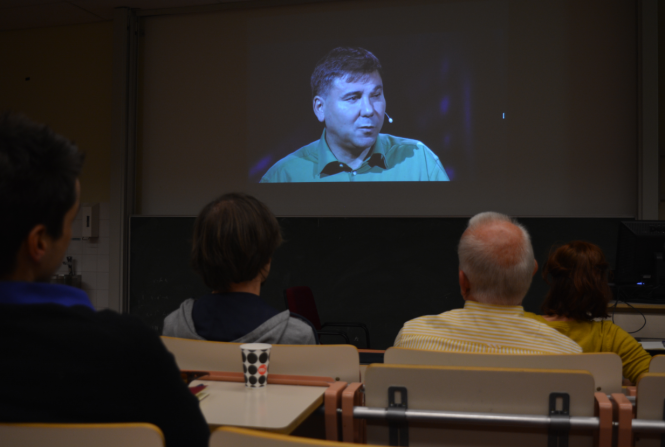
For a start, the first speaker we had was a TED speaker. A bit of a teaser to warm up, let late-comers jump in smoothly and inspire debate. Political scientist Ivan Krastev is watching the Euro crisis closely, fascinated by what it reveals about Europe’s place in history: what does it mean for the democratic model? Will a fragmented Europe return to nationalist identity politics? You can watch his talk here.
On transparency and democracy
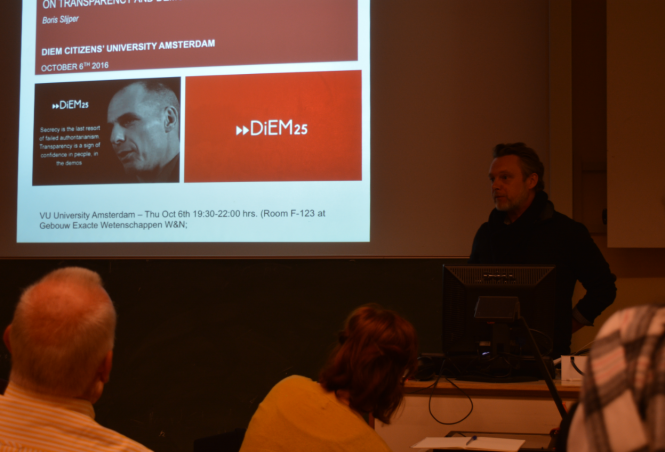
Boris Slijper, currently teaching sociology at the VU, describes himself as having been a very moderate social-liberal between 1989 and 2007 until the economic crisis and the subsequent Greek crisis deeply changed his views. After the shock, he became “sort of an activist” willing to change academia, motivated by the observation that the current academia is not producing the kind of elites we would have expected to be there in 2007. Especially tailored for a non-academic audience, Boris offered, first, a basic introduction to the notion of transparency: how it relates to democracy and some remarks on the arguments against transparency.
In essence, the concept of democracy was addressed from Robert Dahl’s perspective (find out more about his book here): “Democracy is a method of collective decision making based on the idea that citizens are equally competent in making those decisions”. He also reminded us of an idea, though, that often hits a raw nerve among progressive people; that is: that democracy cannot be immediately equated with individual freedom, social justice, gender equality, religious tolerance, environmental justice, etc. Since democracy can indeed lead to “bad outcomes” for progressive-minded people! He went on by explaining the five principles of democratic governance: effective participation, voting equality, enlightened understanding, control of the agenda and full inclusion (of the relevant demos). Note that the latter point is a big issue in European Democracy: how to define the relevant demos when decisions in Germany affect people in Greece? As for ‘transparency’, Boris presented it as an ‘instrumental value’ to achieve ‘enlightened understanding’. In other words: we need transparency; for citizens need to understand what they are deciding about. In his final minutes, Boris offered some second thoughts on transparency and dilemmas that come along with it: sometimes politicians might legitimately need confidentiality to discuss delicate issues. They might, however, abuse. Potential side-effects of demands for transparency are, of course, window-dressing and back-staging. Politicians are likely to find a way and a place to sign deals or hold private extra-official meetings they don’t wish the public to know about.
Transparency and democracy: From Castoriadis to the Commons
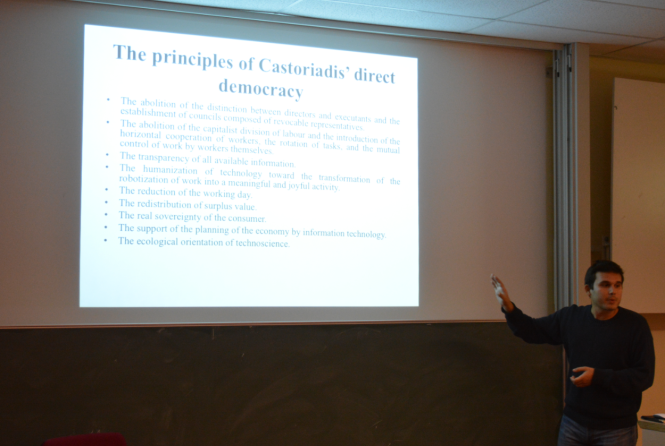
Vangelis Papadimitropoulos holds a PhD degree from the University of Crete and, just as Boris, he started up by sweeping through some definitions of democracy (kratos of the demos). From Aristotle (“democracy is the power of the people”), he took us to Marx (“democracy is the dictatorship of the bourgeoisie”) and to liberals (“democracy is the free market of sellers and buyers regulated by the State”). Vangelis picked up what seems to be a contradiction in the work of Marx: sometimes he argues in favour of “a State Socialism that would gradually lead to Communism” whereas some others, he advocates for the “free cooperation of autonomous workers (therefore: no State)”. Castoriadis, though no Marxist, built up on the second statement. After presenting the principles of Castoriadis’ direct democracy, we learned just how we are currently witnessing the development over the last decades of an alternative economic paradigm, termed Collaborative Commons, that echoes back to Castoriadis’ project. The Commons favour democratic self-management over hierarchical management, distribution of profit over profit maximization, access over ownership, environmental sustainability over growth and last, but not least, transparency over privacy. Moreover, the Commons are mediated by platform co-operativism (e.g. the Internet) by means of which different actors can communicate in a way that anyone is able to take on greater or lesser responsibility according to degrees of motivation, expertise, etc. The creation of such horizontal, flexible cross-connections can advance the recombination and creation of knowledge, leading to increased innovation and autonomy. Finally, Vangelis reminded us that Collaborative Commons can sustain a middle pillar of open co-operativism between a partner state and ethical market entities.
Here, some examples of Commons: Linux, Wikipedia, Loomio, Fairmondo, Las Indias, FabLab, Goteo, Arduino, FLOSS, Open Source Ecology, LibreOffice, FarmHack, Oview & Waag Society.
Open discussion
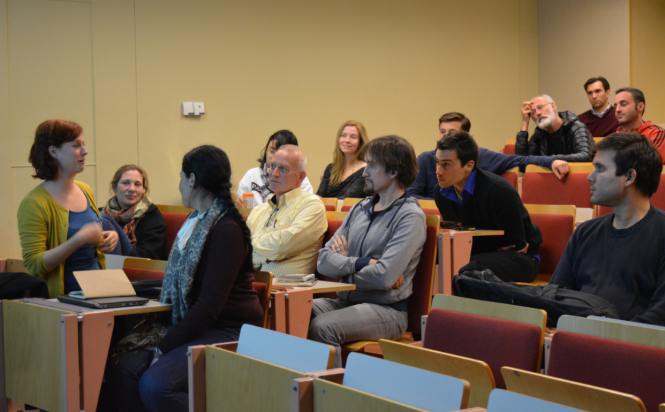
We ended up with an open discussion in which, among many other things, the secret negotiations on TTIP, CETA and TiSA were mentioned several times.
Looking forward to the next seminar!
DCU Amsterdam
